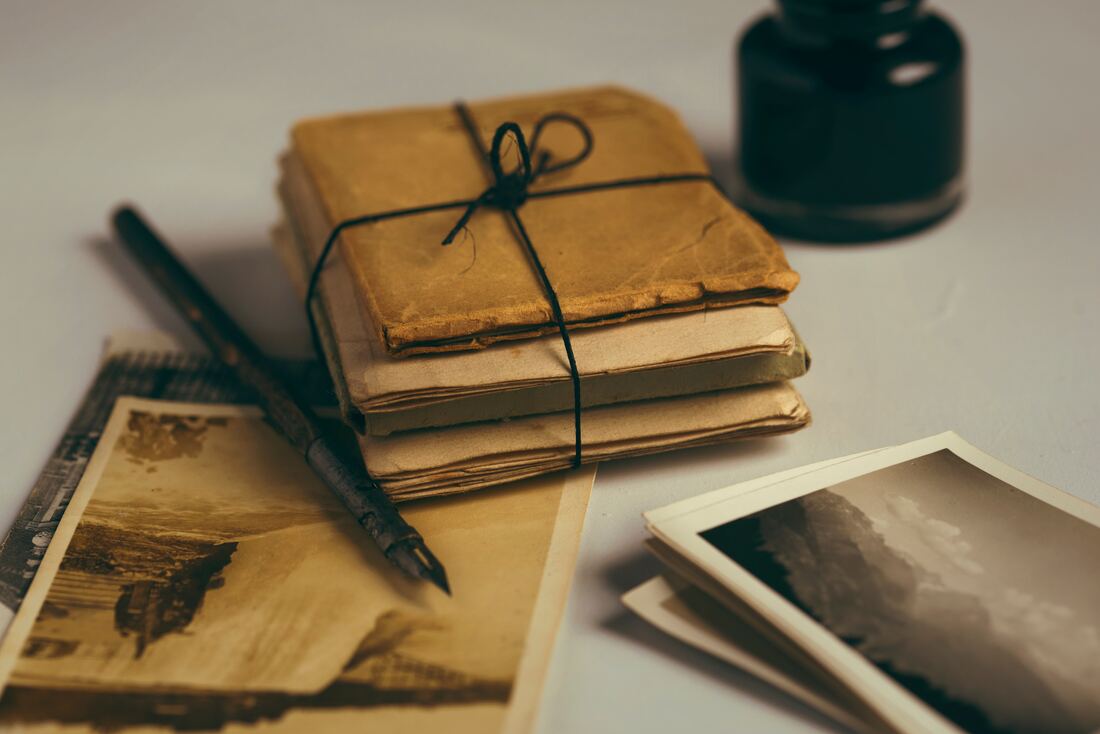No matter what stage you’re at with your family history, it’s all too easy to become overwhelmed by the sheer amount of information you amass. Whether it’s certificates, old photos, reference books or just lots of digital data, continually sifting through piles of information can be disheartening.
Follow this six-step plan to get your research under control – allowing you to focus on the fun part of family history – finding your ancestors!
Read to find out how to organise:
- notes of your work in progress
- family charts, trees and record sheets
- original documentation
- family history memorabilia
- photographs
- your family history library
1. Your day-to-day notes
Start a research log, an ongoing document that shows what you’ve looked for and where – preventing you from duplicating and showing where the facts you have came from. You could also keep correspondence logs and a research record covering all ancestors.
Consider creating a small portable research which has an overview of your research, your working family tree and to do list, so that you don’t have to transport bulky and precious originals to libraries and archives.
2. Family history paperwork
If you’re determined to be super organised, have a separate binder (with acid-free pockets) for each surname on your tree. This can contain a copy of your family tree, record sheets for individuals and other information relating to the family such as census returns and trade directory details, etc.
Don’t be tempted to use cheap PVC pockets as these can strip the ink from the document; acid-free archive quality versions will give your documents top protection.
3. Precious original documents
Your original documents are the foundation of your family history and can include inherited documents such as BMD certificates, school reports, certificates for professional qualifications, service records, etc.
These are the items which you’ll be passing onto the next generation and so it’s worth taking the most care with this category, as these are the records which must stand the test of time.
Acid-free storage materials are used by record offices and archives and are widely available to members of the public from family history supply companies.
4. Genealogy memorabilia
Anything of a non-paper or bulky nature comes under this category and acid-free storage boxes are the best bet for long-term preservation. Wrap items such as family Bibles or fabrics such as a christening shawl or wedding veil in acid-free tissue paper before storing in the box.
5. Family photographs
If you have a collection of precious old photos, consider having them scanned and restored before keeping the originals in your own family archive. Sulphur-free boxes are perfect for photos if not stored in an album. Don’t use sticky labels on the back; if you want to write on the back use a soft lead pencil and write names, date and occasion.
6. Family history reference library
This doesn’t have to be anything grand, particularly as many of us don’t have room to store shelf after shelf of reference books, but it can be really useful to own a few key texts that will help you at all stages of your research. Ideas include:
- A dictionary of family history to help you understand key terms
- Books related to the geographic areas your ancestors came from
- Books that relate to a particular trade or industry
For free, printable or downloadable record sheets to help you organise your family history, visit the Family Tree website.
Photo by Joanna Kosinska on Unsplash

 RSS Feed
RSS Feed
